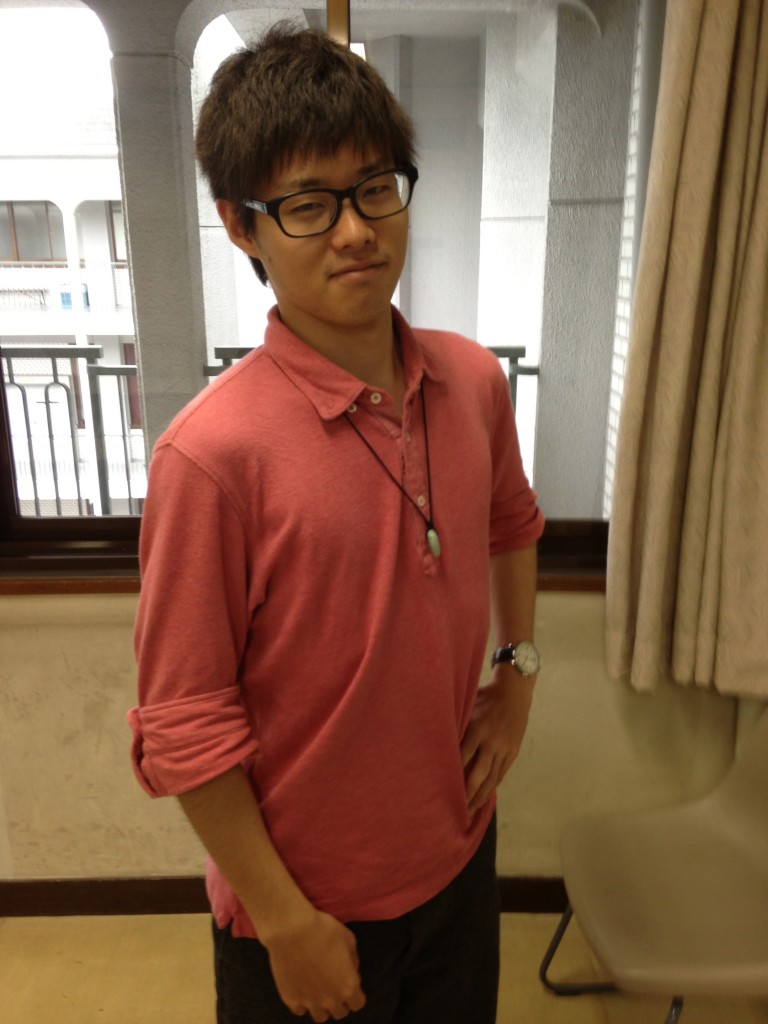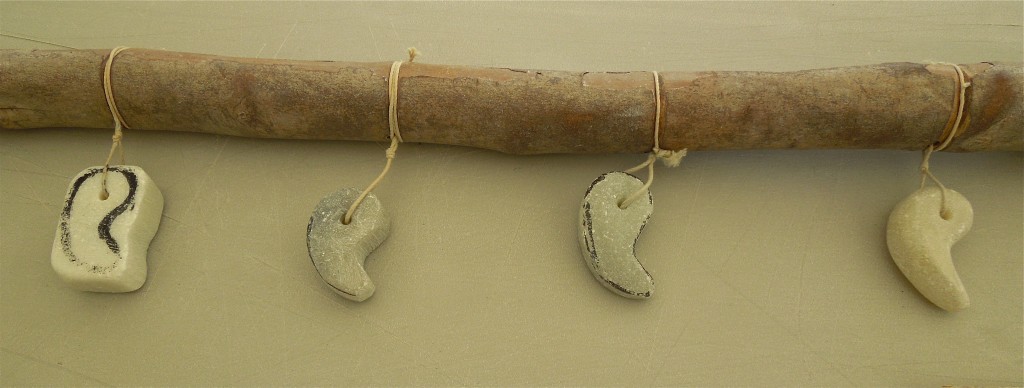 One of my students came to class wearing a magatama round his neck today. When I asked him where he’d got it from, to my surprise he told me he’d ordered it from amazon. (Click here or here for examples.)
One of my students came to class wearing a magatama round his neck today. When I asked him where he’d got it from, to my surprise he told me he’d ordered it from amazon. (Click here or here for examples.)
Magatama are comma-shaped beads which together with the sword and the mirror form part of the imperial regalia. No one is certain about the meaning of the bead, and there are theories to do with being a component of the life-force or a hook for catching good luck. (For the Wikipedia page, click here.)
I was intrigued why the student had chosen such an item and whether there was a religious element to his choice of jewelry. At first he said no, but then on reflection said something interesting about it making him feel more Japanese.
It struck me as part of a general rise in patriotic feeling among the young that has taken place over the past twenty years. It was given a particular boost during the time of prime minister Koizumi, whose right-wing allies took advantage of the times to bemoan the lack of patriotism in society and to demand the rewriting of history books so as to erase ‘masochistic’ admissions of wrong-doing and assert greater pride in the country’s achievements.
 Not long afterwards the power spot boom took place, and there was a notable upturn in the number of young people visiting shrines. Many were young women, who flocked to ‘enmusubi’ shrines in search of good love connections, but there were also many who were motivated by a desire to learn more of history and the nation’s spiritual essence.
Not long afterwards the power spot boom took place, and there was a notable upturn in the number of young people visiting shrines. Many were young women, who flocked to ‘enmusubi’ shrines in search of good love connections, but there were also many who were motivated by a desire to learn more of history and the nation’s spiritual essence.
With the worsening of relations with China and Korea, nationalism has been on the rise in the past few years. And now with the World Cup in progress, patriotic devotion is on display whenever one turns on the television, eagerly encouraged by commentators delighted by the identification of fans with the national team. Here indeed is Japan as one big family, ready to scream or cry in union depending on the result. For the younger generation, feeling Japanese is becoming increasingly important, and one can’t help wondering whether as a result the fashion for magatama pendants is going to spread.
*********************************
In terms of the World Cup, Japan Today carries an article concerning tv reporters asking people why they weren’t watching and supporting Japan’s match against the Ivory Coast. Fuji TV’s coverage managed to set off some grumbles via Twitter.
“‘Tokudane’ is claiming that people who don’t watch the Japanese team in action are going against the flow,” said one. “Is not watching really such a bad thing?”
“More than feeling upset, I’m aghast. It’s like they’re suggesting people who don’t watch are unpatriotic,” remarked another.
“People have the freedom to watch or not to watch, so leave it be already, will you?” a third objected. “Do people absolutely have to watch soccer? Is not watching some kind of crime?”
J-Cast News didn’t confine its complaints just to Fuji TV, however. On the “Sukkiri” program on rival NTV, it seems a live feed showed a reporter falling in step with people who were jogging around the imperial palace, where he brayed out to them, “Japan is losing to Ivory Coast!”

Illustration of the stages in the making of a magatama

Leave a Reply